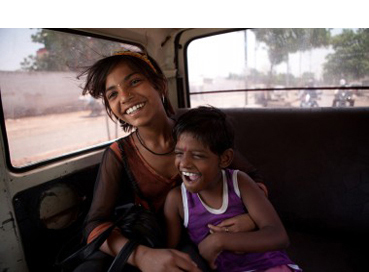Sign our open letter to the board of DowDuPont #DontBuryBhopal : CLICK
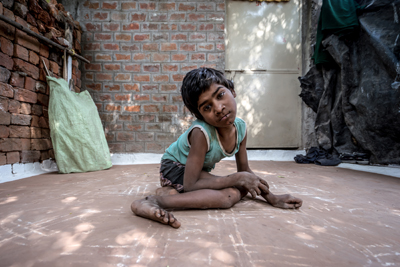
On the night of December 2nd/ 3rd, 2017, it will be 33 years since the Bhopal Disaster began taking the lives of innocent citizens in the heavily populated capital city of Madhya Pradesh, India.
The Bhopal Disaster remains the largest unaddressed corporate social responsibility (CSR) issue on the planet and the coming of each anniversary, while the disaster remains ongoing, only adds further outrage.
- Dow Chemical says everything is settled. Is this true? CLICK
- Union Carbide has never answered criminal charges. Dow served a summons to explain why… but won’t : CLICK
- Are people really still being poisoned 33 years later? CLICK
- UN official says disaster victims may never see justice : CLICK
- The work of a remarkable clinic in : CLICK
- A healing garden grows in Bhopal : CLICK
_____________________________________________________________________________________________________________________
Is The Disaster Settled? Dow Chemical Says It Is.
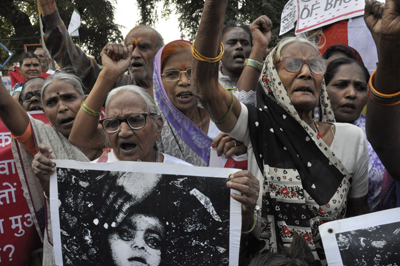
No it is not. Dow Chemical claims that “A full and final settlement, of $470m, was made in 1989” but the Government of India’s official position is that the “gross inadequacy” of the 1989 settlement resulted in an “irremediable injustice”.
The Indian Govt. now seeks an additional settlement amount in excess of $1 billion via a ‘curative petition’ in the Delhi Supreme Court. It is seeking additional compensation, based on higher figures for the dead and injured, running into billions of dollars.
Union Carbide has never answered the criminal charges relating to the disaster and they remain outstanding. Dow has been served, on four separate occasions, to attend the Bhopal Chief Judicial Magistrates Court (CJM) to explain Union carbide’s non-appearance. Dow refused to attend. In Jan 2017, the CJM in Bhopal, issued summons directly, via email, to Amy Wilson, corporate secretary of Dow. Ms. Wilson did not attend the court and neither did she attend a second hearing to which she was summonsed. A third summons has now been issued requiring Ms.Wilson to attend court in Bhopal on the 15th December 2017.
Dow Chemical is subject to environmental litigation in the Madhya Pradesh High Court. Dow has been asked to provide a $15 million advance payment but refuses to do so.
Outstanding court cases against Dow & Union Carbide. More info: CLICK
_____________________________________________________________________________________________________________________
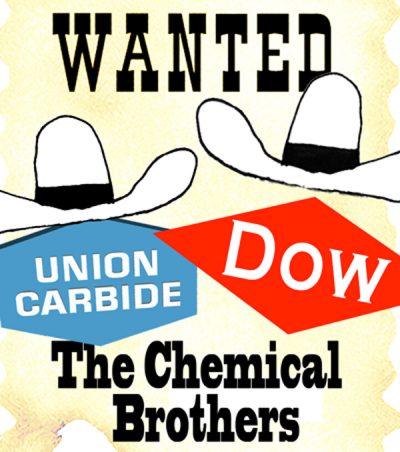
Before 2017, a total of five notices to attend the Bhopal Chief Judicial Magistrate’s Court (CJM) were served on Dow Chemical. The US multinational chemical corporation is required to explain why its wholly-owned subsidiary, the Union Carbide Corporation, has never appeared before the court to answer the criminal charges of culpable homicide which remain outstanding 32 years after the disaster.
None of the American accused have ever shown for trial to face charges in connection with the disaster and apparent violations of a bilateral Mutual Legal Assistance Treaty, on the part of the US Government, had been preventing due process being exercised with every notice sent from Bhopal stalled with the US Department of Justice.
But, in January 2017, the CJM in Bhopal, issued summons directly, via email, to Amy Wilson, corporate secretary of Dow. Ms. Wilson did not attend the court and neither did she attend a second hearing to which she was summoned. A third summons was issued, requiring Ms.Wilson to attend court in Bhopal on the 15th November 2017, but this has been postponed until the 15th December.
Audrey Gaughran, Amnesty International’s Director for Global Issues, said: “The time has come for Dow to appear in an Indian court and account for the failure of its wholly-owned subsidiary, Union Carbide, to respond to the criminal charges against it.”
Dow’s Ownership of Union Carbide. A leaky defence exposed: https://www.bhopal.org/dows-flawed-legal-defence-exposed/
_____________________________________________________________________________________________________________________
UN official says Bhopal Disaster Victims May Never Get Compensation Following Dow-DuPont Merger
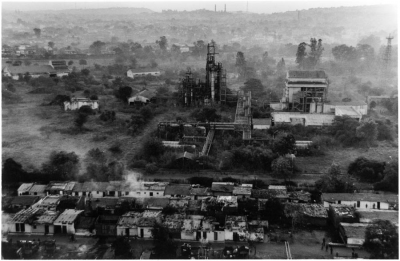
Dow merged with DuPont on the 31st August this year to form the world’s largest chemical company.
Baskut Tuncak, the United Nations Special Rapporteur on ‘the implications for human rights of the environmentally sound management and disposal of hazardous substances and wastes’, is ‘deeply concerned’ about the merger between Dow and DuPont, which he believes could obstruct justice for victims of the world’s deadliest industrial disaster.
Mr. Tuncak said: “This merger creates yet another layer of legal hurdles for victims to arrive at any semblance of an effective remedy and accountability for a preventable disaster now more than 30 years old.
“The victims have faced insurmountable obstacles in getting past the corporate veil of Dow and UCC to find accountability and justice.
“It shocks the conscience and defies any sense of moral or ethical norms that a company believes it can simply acquire all the assets of a company, and leave potential liabilities surrounding a case such as Bhopal.”
Prior to the merger, concerns were raised over apparent attempts, by both companies, to see the back of potentially vast liabilities connected with their respective contamination legacies. Bhopal, in the case of Dow, and C8 for DuPont.
Neither Dow nor DuPont offered clarity to involuntary creditors on what will happen to existing liabilities in the aftermath of a merger that will see DowDuPont split into three different entities within 18 months of the deal going through.
Evasion of environmental liabilities through merger of Dow and DuPont: https://www.bhopal.org/the-toxic-merger-of-dow-and-dupont/
Dow’s ownership of Union Carbide: https://www.bhopal.org/dows-flawed-legal-defence-exposed/
The corporate veil between Dow and Union carbide: https://www.bhopal.org/corporate-veil-between-dow-chemical-and-union-carbide/
_________________________________________________________________________________________________________
Bhopal’s Second Disaster
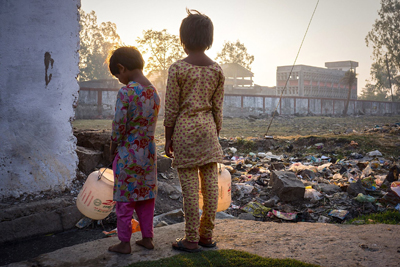
Bhopal’s Second Disaster
At least fifty thousand people have been using a toxic groundwater aquifer (water table) as their main supply for decades. The water drawn from this aquifer is contaminated with highly toxic chemicals leaching into it from toxic waste waste dumped, then abandoned, by Union Carbide.
- Thousands of tonnes of toxic waste, abandoned in and around the Union Carbide factory, while it was in production, continue to contaminate the area and the aquifer.
- Poisonous chemicals leach down in to the ground water aquifer that has been used as a primary water source over a number of decades.
- These highly toxic chemicals attack all of the body’s organs, some are carcinogens, and some cause birth defects.
- Union Carbide was aware of the contamination, after carrying out tests in the area, but chose to keep the findings secret.
- The US courts accepted that the water contamination is a separate issue from the gas disaster.
- Union Carbide/ Dow Chemical will not accept any responsibility
Second Disaster Briefing: https://www.bhopal.org/second-disaster/
_____________________________________________________________________________________________________________________
Corporate Abuse/ the Corporate Veil
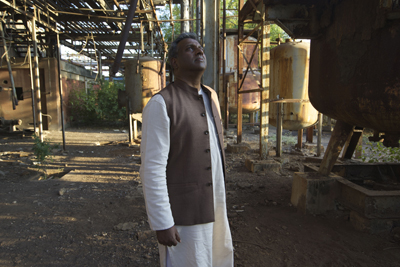
Corporate Abuse/ the Corporate Veil
Union Carbide, and subsequently Dow, hide behind a corporate veil hoping to avoid the legal aftermath of the Bhopal Disaster. More recently, Dow has utilised another layer of that veil, using affiliates and subsidiaries such as DCIPL (Dow Chemical India Private Limited), to continue trading in India whilst avoiding an attachment order against Union Carbide’s goods.
- UCC is banned from trading in India due to its non-appearance in the Bhopal criminal proceedings but Dow has knowingly flouted the ban. An Indian government run business was forced to withdraw from a contract with Dow after a statement was retracted claiming that Dow owned a particular technology.
- From 1987 onwards, UCC used third party agents to deliberately disguise the origin of its goods to port authorities and customs officials in India. The fraud was designed to enable UCC to evade court attachment orders intended to compel its appearance in court on charges relating to the Bhopal Disaster.
- Dow declares to Indian courts that it has no business, assets or personnel in India, and that UCC is an entirely separate company. Leaked Dow emails, published by The Times of India, demonstrate a clear integration across a range of Dow affiliates and show UCC’s purported separateness from Dow to be a “self-serving fraud.”
- Dow claims that it has not settled any UCC liabilities. But, it has accepted liability for asbestos claims against UCC in the United States. When DOW settled a suit on behalf of UCC on Jan 9, 2002, it wiped $7.16 billion from DOW’s share price.
- Dow has sought to use economic muscle and U.S. government influence to pressure the Government of India into releasing it from its Bhopal liabilities. In 2010, U.S. national security official Michael Froman, one of President Obama’s top economic advisors, threatened that the lawful pursuit of Dow, within India’s courts, could “have a chilling effect upon our investment relationship.”
Dow trading Union Carbide goods in India: https://www.bhopal.org/anger-in-india-as-leaked-documents-reveal-that-fugitive-union-carbide-continues-to-trade/
Corporate veil between Dow Chemical and Union Carbide: https://www.bhopal.org/beyond-belief/
_____________________________________________________________________________________________________________________
A Mega-Merger of Toxic Twins
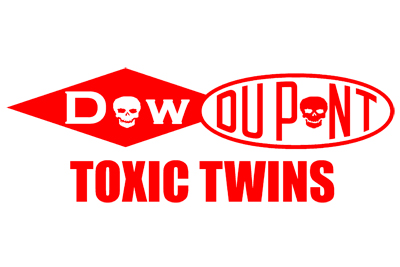
A Mega-Merger of Toxic Twins
Critics say executives of multinational chemical giants Dow Chemical and DuPont deliberately withheld information, on contamination liabilities, in order to rush through a deal that created the world’s largest chemical company. It was argued they would, potentially, avoid legal obligations to thousands of victims around the world poisoned by toxic chemical manufacturing processes along with multi-billion dollar costs.
The merger was closed on the 31st August this year, shortly after which a UN official raised concerns that the merger might prevent the survivors of the Bhopal Disaster from ever seeing justice.
How Dow Chemical and DuPont are attempting to evade their toxic liabilities: https://www.bhopal.org/the-toxic-merger-of-dow-and-dupont/
UN official says Bhopal Disaster Victims May Never Get Compensation Following Dow-DuPont Merger: Bhopal Disaster Victims May Never Get Compensation Following Dow-DuPont Merger
_____________________________________________________________________________________________________________________
Bhopal v Deepwater Horizon
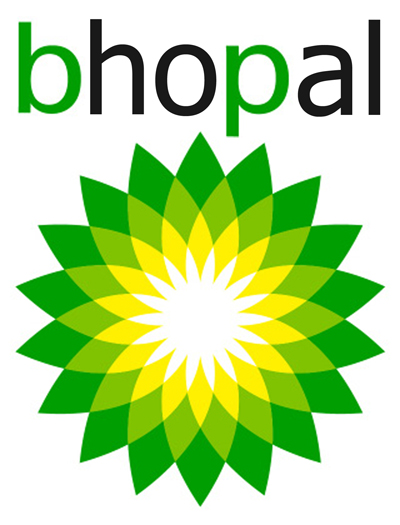
Bhopal v Deepwater Horizon
Although BP has, quite rightly, been held to account for its part in the Deepwater Horizon disaster and paid out in the region of $50bn of fines and damages, it’s nonetheless easy to see why people in the affected area think it simply isn’t enough. Mike Ryan of the Uproxx news and discussion website, when discussing the rip-roaring Hollywood disaster movie film of the same name, praised the film’s performances and ability to make audiences angry at BP: “…if nothing else, I hope it gets people angry again, because the people who did this to our planet, and killed 11 people in the process, got off too easy.”
But, how do the same people feel about the damages paid by US multi-national Union Carbide to settle the civil claims surrounding the Bhopal Disaster in which many thousands of people lost their lives?
How the Deepwater Horizon settlement compares to the Bhopal settlement: https://www.bhopal.org/bp-bhopal-and-the-department-of-justice/
_____________________________________________________________________________________________________________________
The Work of a Remarkable Clinic

The Work of a Remarkable Clinic
The Sambhavna Clinic, in Bhopal, India, treats the survivors of the 1984 Bhopal Gas Tragedy along with thousands more people, mostly from poor, slum areas, who have been slowly poisoned by the toxic waste abandoned at the site of the disaster and contaminating their water supply. Sambhavna is found right at the ‘ground zero’ of the Bhopal Disaster, in the worst affected slum area, but shines like a beacon of hope out of a difficult, dusty despair. To date the clinic, funded by the Bhopal Medical Appeal, has treated more than 43,000 people. It employs around 50 staff, over half of whom are survivors of the 1984 Bhopal Gas Disaster.
Sambhavna has a remarkable, groundbreaking approach using a combination of treatments and strives to give the patients a complete, systemic relief from their health problems. The clinic produces ayurvedic medicines, from plants grown in its own organic garden, and prescribes these alongside western, pharmaceutical medicines. Additional therapies are given using panchkarma, massage and yoga and the clinic is achieving incredible results.
Remarkably, at Sambhavna the ancient, Indian art of yoga is taught to both Hindu and Muslim patients alike by a female, Muslim instructor.
Among many other accolades, the Sambhavna clinic was invited to present a paper to the World Asthma Conference on the positive effects on respiratory disorders achieved at Sambhavna through yoga.
“My main recollection is that as an example of a holistic, environmentally sound, community focused and patient centred approach to health-care the Sambhavna clinic is way ahead of anything I have ever visited or worked in, anywhere in the world.”
Dr. John Hurst, Senior Lecturer/ Honorary Consultant, UCL Medical School/ Royal Free Hampstead Trust.
The Sambhavna Clinic: https://www.bhopal.org/about-us/sambhavna-clinic/
_____________________________________________________________________________________________________________________
A Healing Garden Grows in Bhopal
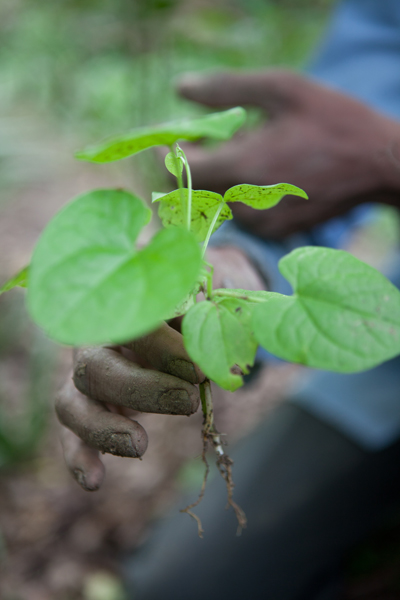
A Healing Garden Grows in Bhopal
The Sambhavna Clinic’s purpose designed building adopts a fully sustainable ethic. Not only is the building naturally cooled, and powered by solar energy, but the garden is a fully functioning, organic farm growing medicinal herbs and plants. A small manufacturing unit, in one corner of the garden, turns these plants into various ayurvedic ointments, decoctions and tablets.
Some of these plants will be familiar to us, back in the UK, either as garden plants or, given the difference in climate, quite often as our own indoor house plants. Using these plants, Sambhavna produces ayurvedic medicines according to traditional recipes. Some of them are dispensed traditionally, in plant form, but they are just as often dispensed in a modern form after, for example, being pressed into tablets and sealed in a blister pack.
But, one of the main aims of Sambhavna is to educate members of the communities still exposed to chemical contamination and teach them how to look after their own health and, to that end, the garden plays a major role. Patients are encouraged to grow their own beneficial plants and are trained as to how they should use them as medicine.
The Sambhavna Clinic: https://www.bhopal.org/about-us/sambhavna-clinic/
A Healing Garden Grows (YouTube, 2009): https://www.youtube.com/watch?v=CexBTtg6Fjk
_____________________________________________________________________________________________________________________
- “In 1984, leakage of poisonous gases from a Union Carbide plant in Bhopal India killed thousands of people and poisoned 100s of thousands, many more in the years that followed. The catastrophe resulted from the company’s failure to correct serious design flaws, despite many warnings. Dow chemical, which now owns Union Carbide, refuses to assume responsibility for these crimes. The people of Bhopal have struggled to enforce accountability for one of the worst corporate crimes in history, and to gain some compensation for their suffering. They have every right to expect us to join them in their courageous efforts.”
Noam Chomsky, April 28th, 2014
_______________________________________________________________________________________________________________
The Bhopal Medical Appeal

The Bhopal Medical Appeal (BMA) represents the Bhopal survivors and funds medical work in Bhopal. It arises from, and is part of, the survivors’ struggle. Its inspiration and ideals come from the survivors.
BMA makes regular grants to two organisations in Bhopal: one is the Chingari Trust Rehabilitation Centre; the other is the Sambhavna Trust which runs the Sambhavna Clinic.
In the Bhopal Medical Appeal we don’t ask you to help us help them. The Appeal, the Sambhavna Clinic and the Chingari Trust are shared efforts between those of us who are survivors, those of us who run the Clinics, and the Appeal, and those of us who support the effort with our money and by volunteering our skills or even just our enthusiasm.
This is our vision, that all of us are equal in an unbroken chain between supporters at one end and gas survivors at the other. Our sincere thanks go to those who have been part of it. The people in Bhopal have a lot to give back to the rest of us. Let’s carry on the good work we’ve begun together.
www.bhopal.org
The Bhopal Medical Appeal is a UK Registered Charity, No:1117526. We operate from a tiny office in Brighton and exist almost entirely on donations, and the other fundraising efforts of our supporters, along with gifts from carefully screened trusts and grant giving bodies.
